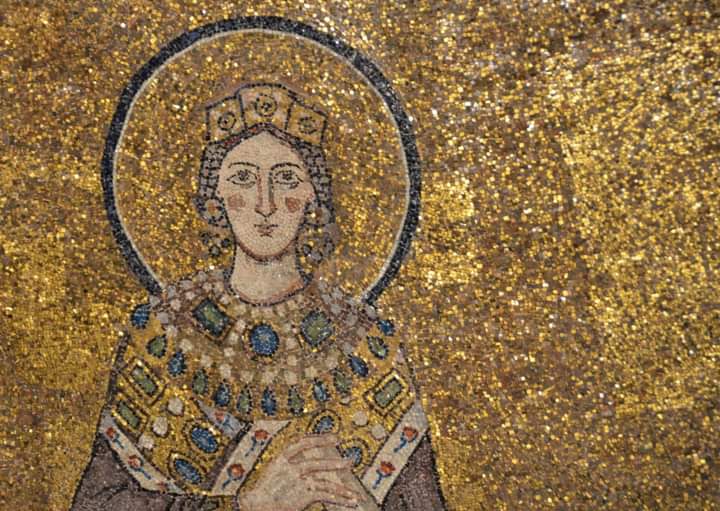By St. Basil the Great
Moral Rule 80
Chapter 22
What is characteristic of a Christian? Faith that works by love (Gal. 5:6).
What is inherent in faith? An unbiased confidence in the truth of God’s inspired words, which is not shaken either by a thought arising from natural necessity, or by apparent piety.
What is characteristic of the faithful? Living in this confidence through the power of the things said, not daring to remove or add anything. Because if “everything that is not of faith is sin” (Rom. 14:23), according to what the apostle said, “and faith comes from hearing, and hearing from the word of God” (Rom. 10:17), then anything outside of the inspired Scriptures, not being of faith, is sin.
What is characteristic of the love of God? Keeping His commandments while seeking His glory.
What is characteristic of love for one’s neighbor? Not to seek one’s own, but that which is of both spiritual and physical benefit to the loved one.
What is characteristic of a Christian? Being born again through the baptism of water and the Spirit.
What is characteristic of the water born? That, as Christ died for sin once and for all, so that he may be dead and impervious to all transgression, according to what is written: “as many as were baptized into Christ Jesus, we were baptized into his death; and so we were buried with Him through baptism into death, knowing this that our old man was crucified with Him, so that the sinful body might be destroyed, so that we would no longer be slaves to sin” (Rom. 6:3-4a, 6 ).
What is characteristic of being born of the Spirit? To become according to the measure given to him what he was born of, according to what is written “that which is born of the flesh is flesh, and that which is born of the Spirit is spirit” (John 3:6).
What is characteristic of the born above? To put off the old man with his deeds and longings and to put on the new man, who is renewed in knowledge, in the image of his Creator (cf. Col. 3:9-10), according to what was said: “all who were baptized into Christ, in You have put on Christ” (Gal. 3:27).
What is characteristic of a Christian? Cleansing from all carnal and spiritual defilement through the blood of Christ and doing holy works with the fear of God and with the love of Christ (cf. 2 Cor. 7:1), and not having a spot or vice or anything like that, but being holy and blameless (Eph. 5:27), and thus to eat the body of Christ and drink the blood, “for whoever eats and drinks unworthily eats and drinks his condemnation” (1 Cor. 11:29).
What is characteristic of those who eat the bread and drink the cup of the Lord? The constant preservation of the memory of Him Who for us died and rose again.
What is characteristic of those who store this memory? That they live not for themselves, but for Him who died and rose again for them (2 Cor. 5:15).
What is characteristic of a Christian? To surpass in righteousness in everything the scribes and the Pharisees (Matt. 5:20), according to the measure of the Lord’s teaching according to the Gospel.
What is characteristic of a Christian? Love one another as Christ loved us (Eph. 5:2).
What is characteristic of a Christian? To always see the Lord before him (Ps. 15:8).
What is characteristic of a Christian? To be awake every day and hour and constantly ready in the greatest perfection to please God, knowing that the Lord will come at an hour he does not expect (cf. Luke 12:40).
Note: The moral rules (Regulae morales; Ἀρχή τῶν ἠθικῶν) are a work of St. Basil the Great, in which he fulfills to the best of his ability his promise given to ascetics in the region of Pontus: to collect in one place the prohibitions and obligations scattered here and there in the New Testament for the one who lives according to the commandments of God. These are spiritual instructions that to some extent resemble a handy reference book to the New Testament texts. They contain eighty rules, with each rule divided into a different number of chapters.
The last Rule 80 contains twenty-two chapters dealing generally with what Christians ought to be, as well as those entrusted with the preaching of the Gospel.
This rule ends with Chapter 22, which however stands differently from the others. Perhaps it should be seen as an epilogue to the entire Moral Rules. Of course, in it too the saint remains true to himself, filling it with quotations and allusions to biblical texts, but at the same time, when reading it, one is left with the feeling of a constant elevation, in which each answer leads to the next question.
Source: Patrologia Graeca 31, 868C-869C.














